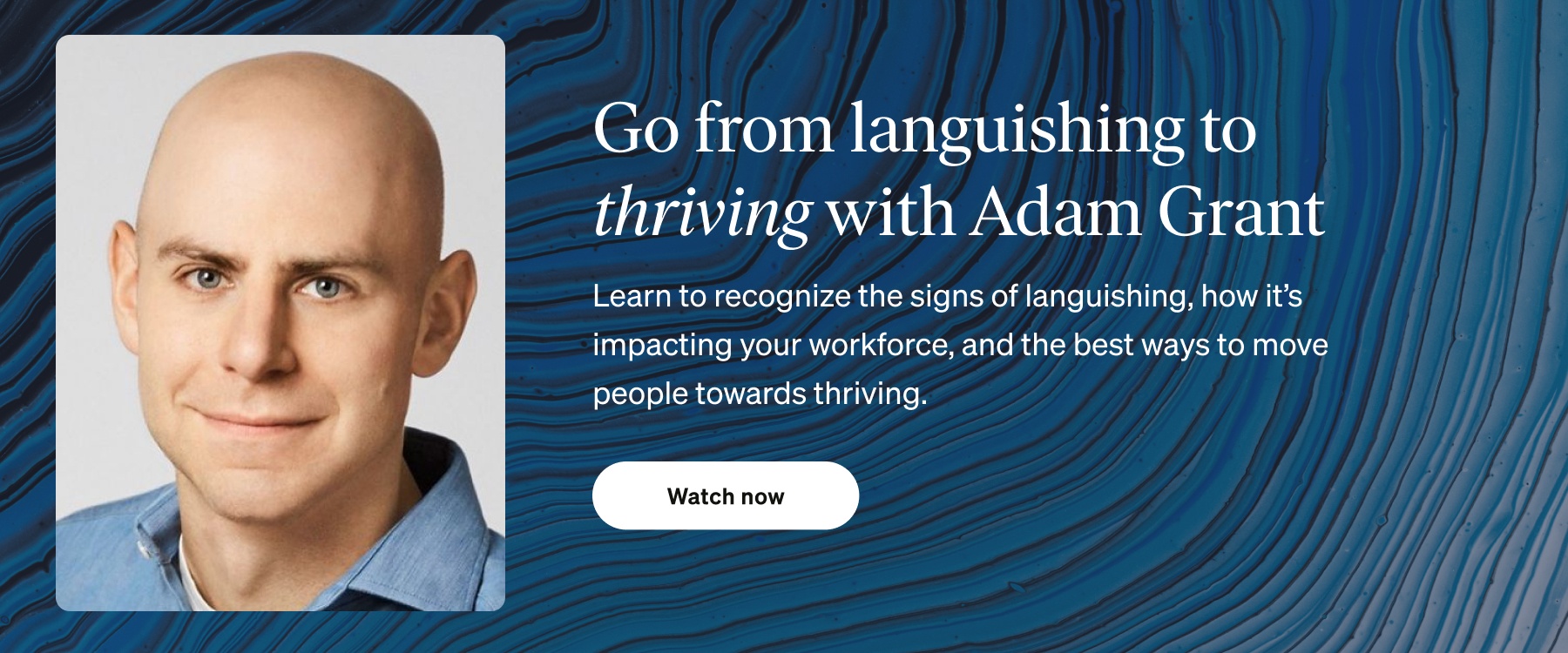
When employees get the support they need, the data shows that the organization is also better set up for success.
When one of my friends got their first job out of graduate school, I was impressed to learn that he was given a fitness tracker, a gym membership, and rewards for meeting certain physical activity thresholds. That was almost a decade ago. Now, that seems like table stakes. Today, the most progressive companies are still thinking about physical health, but are also supporting well-being from a mental health and social health standpoint.
This emerging shift coincides with a pandemic-accelerated change in employee expectations about the role of the employer in well-being. People expect their organization to care about them - and the younger generations place more emphasis on what employers should be doing to support mental health.
In short, there is an emerging shift in the general psychological contract between employee and employer. It is no longer just about the exchange of time and effort for pay and achievement.
Now employees devote long hours and accept loose work-life boundaries with the anticipation of more than just pay or achievement. They also more often expect to find meaning and purpose, to be cared for, to be provided opportunities to grow as a person, to find belonging, and to have access to support for a variety of facets of well-being.
And perhaps this is quite fair given that work generally demands more from us now. If the scope and reach of work has extended, perhaps too should the organization's obligation to the employee.
But as organizations begin to take on more responsibility for the well-being of the workforce, can they actually deliver on this tall order? And if they do, will they get returns?
To explore this question, we turned to our Member data to understand what distinguishes employees coming from organizations who offer noteworthy support of employee well-being relative to those coming from organizations who are a bit behind the curve.
What the data says
We collected data from thousands of BetterUp Members on a set of employee outcomes. We also asked these Members to rate the degree to which their organization cares about their well-being.
Members who said that their organization cares about them were 3.4x more likely to have high job satisfaction, 2.7x more likely to have high organizational commitment, 2.1x more likely to be high in stress management, and 1.9x more likely to be highly engaged.
Overall, when organizations care about well-being, the benefits return in the form of a more highly engaged workforce, that is more committed to the organization, better able to handle stress, and overall more satisfied with their job.
Why it matters
To be clear: there is value to supporting well-being for its own sake. And, there is a pressing need. Deloitte reports that 48% of Gen Zs and 44% of millennials said they feel anxious or stressed all or most of the time.
The expectation that employers step up will also continue. Whether employees return to the office, go hybrid, or stay at home, 98% of CEOs agreed that employee mental health and well-being will continue to be a priority even after the pandemic is resolved. As McKinsey has described it: mental health in the workplace is the coming revolution.
But investing in employee well-being isn’t just good for the individual or for the employer brand. When employees get the support they need, the data show that the organization is also better set up for success.






